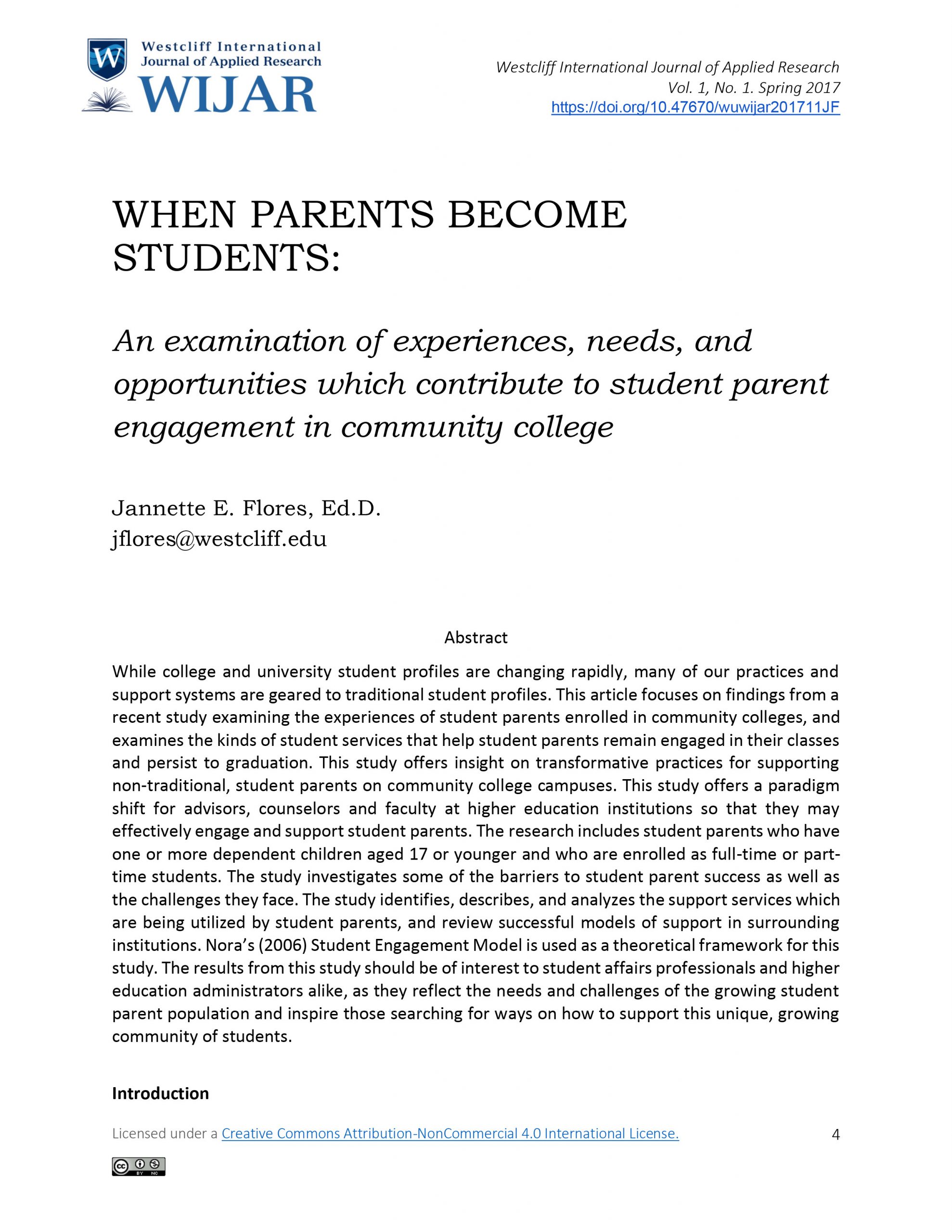When parents become students: An examination of experiences, needs, and opportunities which contribute to student parent engagement in community college

Author: Jannette E. Flores
Issue: Spring Issue, 2017
Download ArticleAbstract
While college and university student profiles are changing rapidly, many of our practices and support systems are geared to traditional student profiles. This article focuses on findings from a recent study examining the experiences of student parents enrolled in community colleges, and examines the kinds of student services that help student parents remain engaged in their classes and persist to graduation. This study offers insight on transformative practices for supporting non-traditional, student parents on community college campuses. This study offers a paradigm shift for advisors, counselors and faculty at higher education institutions so that they may effectively engage and support student parents. The research includes student parents who have one or more dependent children aged 17 or younger and who are enrolled as full-time or part-time students. The study investigates some of the barriers to student parent success as well as the challenges they face. The study identifies, describes, and analyzes the support services which are being utilized by student parents, and review successful models of support in surrounding institutions. Nora’s (2006) Student Engagement Model is used as a theoretical framework for this study. The results from this study should be of interest to student affairs professionals and higher education administrators alike, as they reflect the needs and challenges of the growing student parent population and inspire those searching for ways on how to support this unique, growing community of students.
